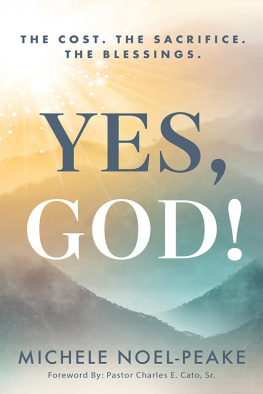Fight for the Faith and Freedom
George Jeffreys, The Revivalist and Reformer of Today.
Founder of the Elim Movement and former Principal of its Bible College.
by
Noel Brooks
Pentecostal Pioneers Series
No. 42
Published by The Revival Library
www.revival-library.org
<
Copyright
The original was undated and therefore failed to comply with British copyright laws. The book is in the public domain.
Contents
Introduction
Chapter 1. The Making of an Apostle
Chapter 2. The Crowd-Compeller
Chapter 3. Penning His Sheep
Chapter 4. Clericalism
Chapter 5. The New Ideal
Chapter 6. Stormy Winds
Chapter 7. Renunciation
Chapter 8. Issues
Chapter 9. Blinding Expedients
Conclusion
Table of Contents
Introduction
It is doubtful if history can furnish us with a record of one who, in his own lifetime, filled the role both of Founder of a religious movement and of Reformer of it. Usually the Founder of such a community has gone the way of all flesh long before the Reformer of it has arisen. My story, therefore, of a man who is both Founder and Reformer of the same religious body has perhaps some claim to uniqueness.
George Jeffreys, Revivalist, between the two greatest wars of history undoubtedly scaled the highest peaks in the realm of evangelism. Beginning in obscurity, he was not only unsponsored by the religious denominations of his day but opposed by them. Yet he pioneered with the utmost courage the full New Testament message until the largest auditoriums of this and other lands were crowded to capacity with men and women who were being moved Godward by his powerful ministry. In those twenty-five years tens of thousands were converted to Jesus Christ in his services, astonishing miracles of physical healing were wrought, hundreds of churches were established, many of them housed in stately buildings, and a Bible College, printing and publishing works were founded to sustain the virile Elim Movement which his genius, under God, had created.
Clearly such achievements are sufficient to win him lasting fame in the annals of evangelical enterprise. My story, however, does not end with the record of his triumphs. George Jeffreys, Revivalist, was destined to play yet another role. He was to become George Jeffreys, Reformer. At the very height of his success the conviction came upon him that the religious organisation which he and his followers had, in all sincerity, established, and by which they hoped to conserve the phenomenal results of his untiring service, was out of harmony with Gods revealed order in the New Testament. He discovered that this system, as all such systems, lent itself to tyranny and stood in great danger of exploitation in the interests of a narrow clerical caste. Thenceforward, with the same dauntless courage with which he had pioneered his message and built up his movement, he flung himself into the work of reform and, eventually, renounced the Elim Movement entirely rather than sear his enlightened conscience.
LEGAL BONDS
The nature of George Jeffreys evangelistic work compelled him to provide buildings where his converts could meet for worship and instruction. Entering a town he would create, without assistance and often in the midst of opposition, a large Foursquare Gospel assembly, apparently out of nothing. His ministry, and that of his
Revival Party, did not end with the benediction at the close of a Gospel campaign. They would search for a disused church building or hall that might be purchased as a permanent home for the newly-formed church and, having found it, would spare no pains to secure and prepare it for the worshippers.
By 1934 the Revival Movement had. acquired a vast amount of church and house property throughout the British Isles, and this had been taken over chiefly by a few Elim ministers, including the Revivalist and the Secretary-General, under what is known as Undisclosed Trusts. Since taking his stand for reforms George Jeffreys has openly condemned this practice in religion. As he himself has said, It should be made illegal. It is decidedly wrong for individuals, though they be ministers of the Gospel, to appeal to the people for funds towards church property and then to deprive them of any say in its control. Such a practice can be a menace to church and nation.
In 1934 the Deed Poll of the Elim Movement came into existence and this legally swallowed up all the undisclosed trust church and house property that had previously been held by individuals. This, to most of the leaders of the Movement, including the Revivalist, seemed to be a step in the right direction. But there was a great blunder. The Deed Poll was signed by nine Elim ministers without consulting the churches as to the nature of the Trust. By signing the Deed Poll the nine ministers made themselves the legal governors over all Elim Alliance churches, pastors, properties and finances throughout the British Isles.
The nine ministers of Elim who signed the Deed Poll were George Jeffreys (the Founder), E. J. Phillips (the Secretary-General), R. E. Darragh, James McWhirter, R. Gordon Tweed, E. C. W. Boulton, W. G. Hathaway, Joseph Smith and P. N. Corry. It is worthy of record that when the nine were gathered together in the Elim Bible College, Clapham, London, for the purpose of signing this important legal document, George Jeffreys hesitated before appending his signature and inquired of the Secretary-General, in whom he had implicit trust, if there were anything in the Deed Poll to prevent the Elim people having control of their local churches. It was only after being assured on this point that he signed. George Jeffreys never thought that anyone on that Executive Council would in future days oppose the just rights of the people to secure for themselves the church buildings they had paid for.
In 1939, George Jeffreys and three of the nine, namely, R. E. Darragh, James McWhirter and R. Gordon Tweed, with eyes open to the need of reforms, were determined to present each church throughout the country with Trust Deeds that would for ever safeguard the just rights of the congregations that had paid for the churches, chiefly out of hard-earned incomes, or resign from the Movement.
As long as George Jeffreys, by his pioneer campaigns, continued to bring new congregations, pastors, properties and finances under their control his fellow-govemors lost no opportunity, by word and in script, to eulogise him to the full. There was none like their beloved Principal. But when he showed determination to stand for the just rights of his many churches and pastors, including the peoples right to own and control the church property they had paid for, he was condemned by his opponents as a disturber of churches, whose only aim in life now was to divide the work !
It was, of course, inevitable that the Reformer should suffer misunderstanding and misrepresentation. The core of the dispute that has arisen between George Jeffreys and his fellow-governors who signed the Elim Deed Poll of 1934 is the clerical central control of pastors, people, properties and finances of the Elim churches throughout the British Isles. In such a centrally controlled organisation communities of Christian believers are governed, in the final analysis, by a group of ministers whom they have not appointed and over whom they can exercise no control. What such a totalitarian system would mean in the political world I need not tarry to describe. In religion, as Thomas Goodwin, Puritan Divine, put it : Such government may possibly issue in the greatest tyranny. (Footnote: The Constitution, Right Order and Government of the Churches of Christ, p. 5, Thomas Goodwin, D.D.)



